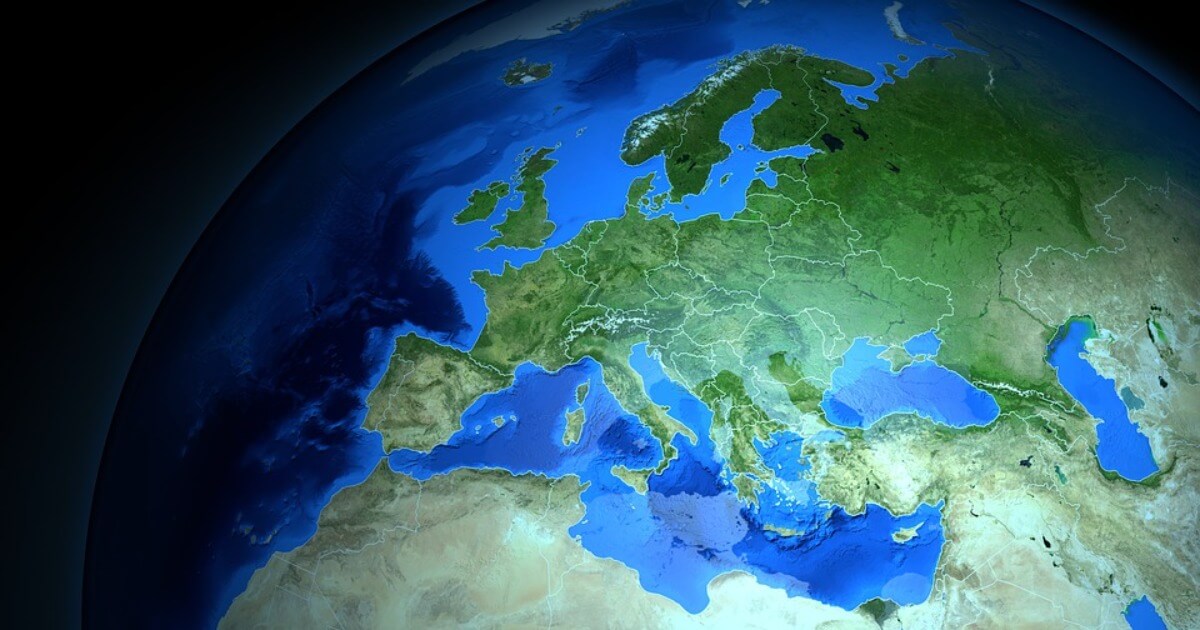Remembering the Start of Globalization
The train of globalization left the station when Columbus reached the Americas. It will never go back.
October 8, 2018

Globalization began in 1492 for real. True, for thousands of years before that year, there were intermittent contacts between distant parts of the world. But continuous, rather than very occasional, direct human interaction across continents began with the European exploration of the oceans from the 1400s onward.
That’s not a Eurocentric world view. That’s a historic fact.
The arrival of Columbus in America thus provides the decisive punctuation mark in that evolving process. It is the day when globalization actually began.
The event is justly celebrated. All human progress and mutual knowledge accumulated since that time is largely due to this journey. This process involved marvelous things, the merely good ones, the bad and the real evil ones.
There is a tendency today to focus on the evils, along with plenty of moralizing against explorers and, yes, colonizers. But throughout the developing world, the downsides of the interchange with the West are, in the aggregate, far outweighed by the benefits.
The threat of self-destruction
The only thing that could reverse this would be the self-destruction of humanity, willful or not, by means of new technologies. Such self-destruction is unfortunately a realistic prospect.
The technologies to be worried about range from nuclear doomsday machines, which are already somewhat old-fashioned, to out-of-control biological weapons or artificial intelligence programs, bugs imported by the space program, nanotechnological gray goo, as well as risks so far unidentified, but related to the ever-growing range of new technologies.
We have just learned, from the Higgs boson, about the prospect of vacuum decay and the first ideas on how to blow up the universe.
Everything that has happened with globalization in the half millennium since 1492 can be summed up in one sentence: Global interchange has continued at an ever-accelerating pace, despite intermittent setbacks.
Oceanic exploration and trade soon covered all regions of the globe, while starting out strongest in the transatlantic dimension connecting Europe and the Americas.
The global trade routes out of Europe passed through the Atlantic as the home area, dwarfing the old trade routes of the Mediterranean and the Silk Road, turning the Atlantic into the center of the emerging world economy for the coming centuries.
The drivers of globalization
Global interchange accelerated with every advance in science and technology, from the steamship and industrial revolution onward to the present. It continued in the 1900s, despite some long-lasting setbacks such as communism, fascism and world wars.
Interchange was renewed and buttressed after 1945, in response to these setbacks, by international institutions. The UN system, the Bretton Woods system, and the Euro-Atlantic system all served to rebuild, stabilize and increase the interchange.
True as well that the deregulation of financial flows which commenced in the 1980s increased the interchange greatly, while engendering risks of another major setback. This seems to have been the starting point of the popular use of the term “globalization.”
Progress? Regress?
Interchange was further accelerated by the abandonment of the largest protectionist and socialist barriers to it in the 1990s in China, India and the former Soviet space. China and India lifted themselves out of their self-imposed stagnation and began a phase of remarkable progress.
The flip side of that has been that Western workers are no longer shielded from the competition from Chinese workers in goods production and Indian workers in services. In addition, Western workers have suffered a reduction in the wage gains they would have otherwise been enjoying.
The resulting risk of social destabilization has triggered an understandable reaction against globalization. At the same time, when one looks at a global balance sheet, there is no denying that hundreds of millions of truly poor workers in the world have gained dramatically in income and welfare, thanks to the intensification of globalization.
All of this has finally brought some wage equalization on the global level, after several centuries in which the West had rushed ahead thanks to its science and technology.
The internet has added yet another dimension of globalization. It has meant an acceleration of interchange that is explosive in more than one sense of the word. It has accelerated the spread of information at a geometrical, even exponential, pace.
Discussion and organizing have mushroomed across borders for all purposes — love and culture, scholarship and science, telecommuting and outsourcing, money laundering and terrorism.
The question of how humanity can organize itself to better manage the consequences of this explosion of interchange — to better, to buttress, to channel, to regulate and to restrain it — is a subject beyond the scope of this article. The one thing that is clear is that, however it is done, it will involve more globalization.
With the benefit of hindsight, we will see that social media are but a crude interim step in that evolving process.
Conclusion
The future cannot be predicted in detail. What can be predicted is that the central developments of the future, whichever way they go, will go global.
The train of globalization left the station when Columbus reached the Americas. It will never go back.
Takeaways
The train of globalization left the station when Columbus reached the Americas. It will never go back.
Everything that has happened with globalization in the half millennium since 1492 can be summed up in one sentence: Global interchange has continued at an ever-accelerating pace, despite intermittent setbacks.
There is no denying that hundreds of millions of poor workers in the world have gained dramatically in income and welfare thanks to globalization.
The future cannot be predicted in detail. What can be predicted is that the central developments of the future, whichever way they go, will go global.
